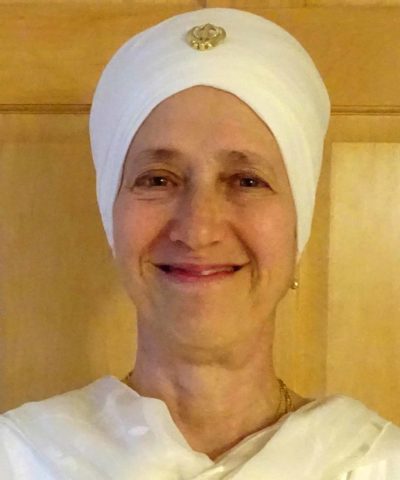by SS Sat Tara Kaur Khalsa, Boulder CO
Fall 2020
“At the time of the Buddha, there were countless religious and spiritual teachers, each advocating a different spiritual path and practice, and each claiming their teachings were the best and the most correct. One day a group of young people came to ask the Buddha, ‘Of all these teachers, whom should we believe?’ ‘Don’t believe anything, not even what I tell you!’ replied the Buddha. ‘Even if it’s an ancient teaching, even if it’s taught by a highly revered teacher. You should use your intelligence and critical mind to carefully examine everything you see or hear. And then put the teaching into practice to see if it helps liberate you from your suffering and your difficulties. lf it does, you can believe in it.’”—Thich Nhat Hanh
In light of the recent report related to the allegations against Yogi Bhajan, our community and organizations are in turmoil, struggling to navigate this new phase and to restructure and adapt to the newly expressed need for transparency. Precious family relationships and long-standing friendships are strained. And this is taking place as COVID-19 ravages the planet and many in our country are struggling to transform long-standing vicious racism that is structural in our societal institutions or subtle within ourselves. All this is added to whatever else is personally challenging in our lives.
I have heard many people talk about feeling stressed, overwhelmed, confused, angry, enraged, betrayed, and depressed. Some are having trouble sleeping. People are asking themselves questions such as: “How could I have been so blind, so naïve? How could I have given away my power so radically? How am I culpable and what can I do about it? What could I have done differently? What changes within myself need to happen now? How can I protect the legacy while being true to myself? How can I hold two such disparate realities of Yogi Bhajan? What of the teachings are truly mine? What do I want to share with others? Who am I and what is my Path?”
Self-Care Techniques
I have been in the Dharma for almost 50 years and working professionally as a psychotherapist for about that long. We all know many techniques to help ourselves. Here are five humbly-offered suggestions for self-care that can be helpful as we go through this current challenging time. These techniques may be new to you, or perhaps they offer a fresh insight:
 Self-Counseling Voice Recording—I have made my own “self-counseling recording” to use in times of acute distress. Every time you have a thought or hear some words of wisdom that soothe your soul and emotions, write them down. Don’t be politically correct, but include the messages your body opens to.
Self-Counseling Voice Recording—I have made my own “self-counseling recording” to use in times of acute distress. Every time you have a thought or hear some words of wisdom that soothe your soul and emotions, write them down. Don’t be politically correct, but include the messages your body opens to.
You can include quotes, hukams, sweet reminders, poems, what you are grateful for, your own personal words of encouragement—but make sure that they are as truthful and as accurate as possible—not overly ra-ra or fake sunny. What would be believable to your mind in its upset state?
Use a variety of messages and take several weeks to compile the list. Then, when you are in a calm, neutral, strong place, make a recording of these messages for a total of about 10 minutes. Then when you are in crisis, just turn on the recording of you, in your own sacred voice, full of your intimate and innate wisdom. Over time, you may notice that what you respond to will be different at various times. You can edit the recording if something doesn’t ring true to you.
Take It Slowly—Some people right now are alert to the problems associated with denial and/or “spiritual bypassing.” But perhaps that is the mind’s way of saying, “I’m not ready to deal with this, I need more time, I’ll deal with it when I am ready.” Respect your timing, even if it is a gentle and gradual unfolding. What needs to be processed will come up again. Sometimes we need to triage or rest, and that is healthy. The often-maligned “plateau” is often a time of healing and integration. It’s the “Rahao (pause).”
Lean on Community—Reach out to others and process together. (Right now, many of us are joining in “Zoom Sangat” as a way to stay connected.) This is an incredibly rich opportunity to be authentically heard and to listen to each other in ways that perhaps we haven’t done before. There is so much bravery being demonstrated these days and there is a lot of spaciousness. If you bump into harmful judgments, you can move on to someone else or another group. If you decide to utilize psychotherapy, I recommend a modality that is effective in dealing with trauma that is body-based such as Brainspotting, Somatic Experiencing, Hakomi, or Eye Movement Desensitization and Reprocessing (EMDR). I value Neuro-Linguistic Programming (NLP) as well.
Take Ownership – Consider which of the teachings of the Dharma are truly yours. See which ones, if any, have relevance for you. Want to chuck out some of them? Ask yourself why. Maybe it’s a good thing. Is there something salvageable? We are all being thrust into a situation where we must be more self-guided and take ownership. No more “Fake it and you’ll make it.” (Thank God!) The old order, both within our groups and in society at large, is being suddenly and irrevocably stripped away. It can feel destabilizing, but we will probably settle into a new normal after some time.
Experiment with Shifting Perspective – As a therapeutic exercise, temporarily try on the perspective that it is all perfect, God’s plan, all happening for a reason. I do not mean this as a spiritual bypass. Notice how this perspective generates different questions to ponder and process such as: How is this situation good? What can I learn from it? How can I do better? How do I go about forgiving myself or others? How can I deepen my understanding (not excusing) the humanity of the perpetrators or victims? (You might enjoy Valarie Kaur’s new book “See No Stranger” for more on this topic.) Am I coming to a simplistic and premature resolution? Put yourself in the mind and heart of Guru Ram Das…how would he experience and respond to this situation? How would Guru Gobind Singh, the soldier/saint respond?
We are birthing into a new era. It can be messy and painful. These times are offering the opportunity for each of us to reclaim our own sovereignty. I wonder what will emerge.
I hope this is helpful to you.
About The Author
 SS Sat Tara Kaur Khalsa became an ordained Sikh Dharma Minister in 1981. After studying Comparative Religion at Smith College, and exploring various spiritual paths for five years, it was “love at first breath” at her first Kundalini Yoga class in 1972. She was the first employee of the Kundalini Research Institute before returning to school to get her Master’s Degree in Marriage, Family and Child Counseling. She was co-director of 3HO of Illinois, organized 10 White Tantric Yoga courses in Chicago, and taught Kundalini Yoga for 32 years. Sat Tara Kaur serves as the Sikh Dharma of Colorado community liaison. She works part-time as a licensed psychotherapist specializing in psychological/spiritual approaches to releasing traumatic experiences and serving as a consultant and expert witness in divorce cases and immigration cases. She has produced four CDs for self-therapy and is the author of “Divorce Survival and Recovery.” She founded and served for five years as the director of Women’s Global Forum, a consortium of over 100 international organizations dedicated to helping women in creative ways. Her website is SatTaraTherapy.com. She is married and has two grown children.
SS Sat Tara Kaur Khalsa became an ordained Sikh Dharma Minister in 1981. After studying Comparative Religion at Smith College, and exploring various spiritual paths for five years, it was “love at first breath” at her first Kundalini Yoga class in 1972. She was the first employee of the Kundalini Research Institute before returning to school to get her Master’s Degree in Marriage, Family and Child Counseling. She was co-director of 3HO of Illinois, organized 10 White Tantric Yoga courses in Chicago, and taught Kundalini Yoga for 32 years. Sat Tara Kaur serves as the Sikh Dharma of Colorado community liaison. She works part-time as a licensed psychotherapist specializing in psychological/spiritual approaches to releasing traumatic experiences and serving as a consultant and expert witness in divorce cases and immigration cases. She has produced four CDs for self-therapy and is the author of “Divorce Survival and Recovery.” She founded and served for five years as the director of Women’s Global Forum, a consortium of over 100 international organizations dedicated to helping women in creative ways. Her website is SatTaraTherapy.com. She is married and has two grown children.


